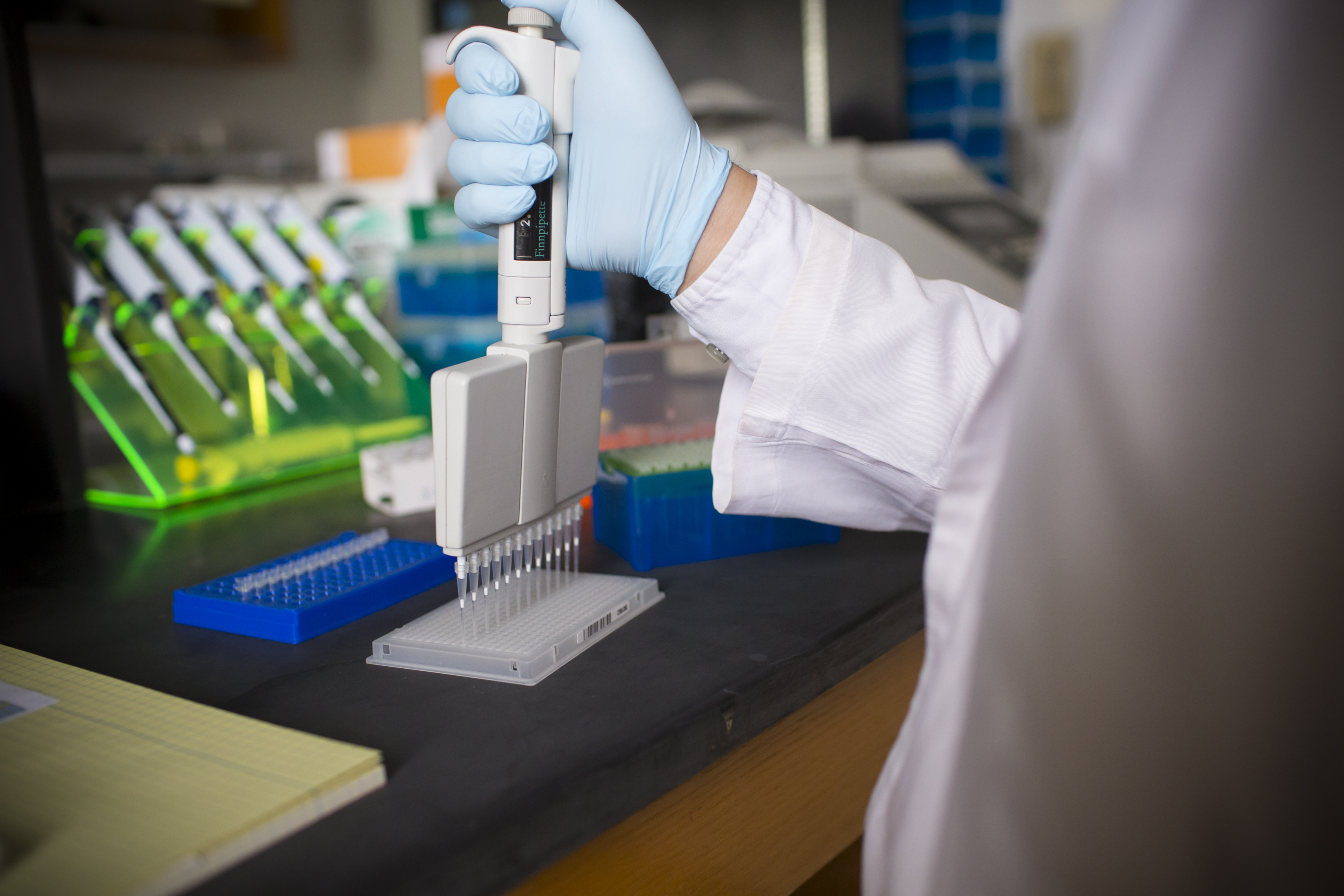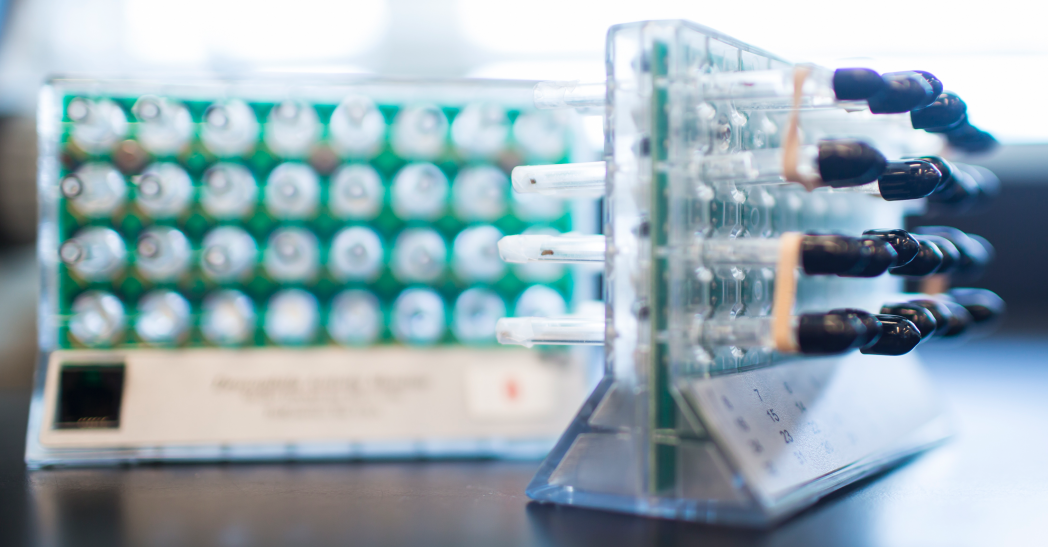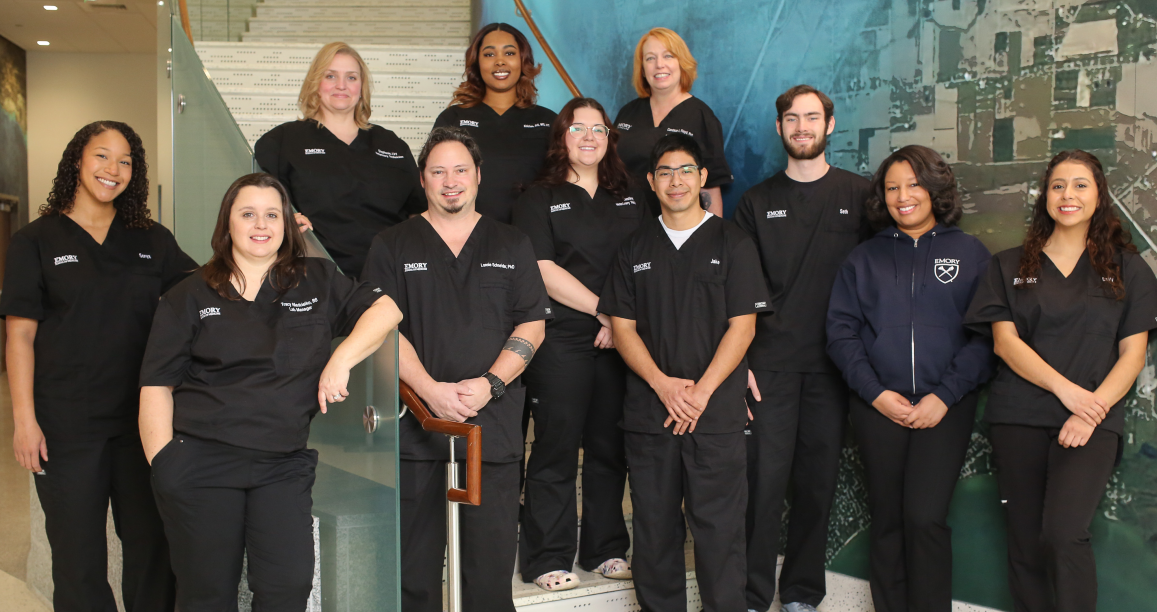About the Translational Neurotrauma Research Laboratory
In the blink of an eye, the life of an individual who sustains a traumatic injury to the brain or spinal cord may change...perhaps forever. Traumatic brain injury (TBI) is caused by an impact, blow, or jolt to the head or by an object that penetrates the head and results in alterations in brain function. Spinal cord injury (SCI) is the result of damage to the spinal cord that often causes permanent reduction in movement, sensation, and other body functions at and below the site of the injury. Both TBI and SCI are causes of neuropathic pain, pain caused by injury to the nervous system. TBI and SCI are serious public health concerns that affect thousands of persons annually, including those injured, their family, community, and health care providers.
The Translational Neurotrauma Research (TNR) Laboratory conducts preclinical research to accelerate the discovery and translation of new treatments for traumatic TBI, SCI, and neuropathic pain. The TNR Laboratory is directed by Dr. Candace Floyd, Ph.D., the assistant director is Dr. Lonnie Schneider, Ph.D., and the lab is managed by Tracy Niedzielko.
- We are an interdisciplinary and collaborative team
- We value a climate of diversity, inclusion, and engagement and support an organizational culture that is rich in diverse attributes and viewpoints

All research is conducted with rigorous quality standards to enhance the reproducibility, transparency, and translational impact of our research. The TNR Laboratory leadership team are Certified Professionals in Good Laboratory Practice (GLP), and the TRN Laboratory uses near-GLP methods and documentation standards to the greatest extent possible.
Frequently utilized research techniques include large animal surgery and post-operative management, behavioral pharmacology, histopathology, and molecular assays for evaluation of mechanisms. Our team evaluates novel drugs, devices, and combination therapies to assess the effectiveness of new therapies to protect, restore, or repair function after injury to the central nervous system.
Our research is funded by:
- The National Institutes of Health
- The Department of Defense
- The Department of Veterans Affairs (VA)
- We are also honored to receive donations from philanthropic organizations to support our research.
In addition to her work in the Emory University Department of Emergency Medicine, Dr. Floyd holds a research appointment at the Atlanta VA Healthcare System.
Training Opportunities

Trainees in the TNR Laboratory work in a team environment using a multi-disciplinary approach. The TNR Laboratory faculty and staff that support the trainee experience include the Director and Co-Director (faculty), a full-time laboratory manager, a full-time research specialist, and several full-time veterinary technicians.
The TNR Laboratory uses a digital laboratory notebook system, and all experimental protocols and data are evaluated by a quality assurance professional. To the greatest extent possible, we use standard operating procedures, common data elements, and data sharing. Dr. Floyd is an Emory University School of Medicine Discovery Phase Mentor who provides Emory medical students with the opportunity to conduct a hypothesis-driven research project in Neurotrauma research. Research opportunities for undergraduate, graduate, post-doctoral, and resident research trainees are also available.
Current Projects

- Evaluation of a novel inhibitor of the potassium/chloride cotransporter 2 (KCC2) as a therapeutic target to enhance plasticity and promote recovery of function after SCI in a porcine model
- Development and validation of a pig model of spinal cord injury-induced neuropathic pain
- Assessment of a combination of epidural stimulation and plasticity-enhancing drugs to promote recovery after SCI using a porcine model
- Development and validation of a pig model of post-traumatic headache, headache after traumatic brain injury
- Evaluation of a novel gene therapy to reduce neuropathic pain after SCI using a pig model
- Evaluation of shared data in TBI and SCI preclinical research to discover novel therapeutics and accelerate discovery


